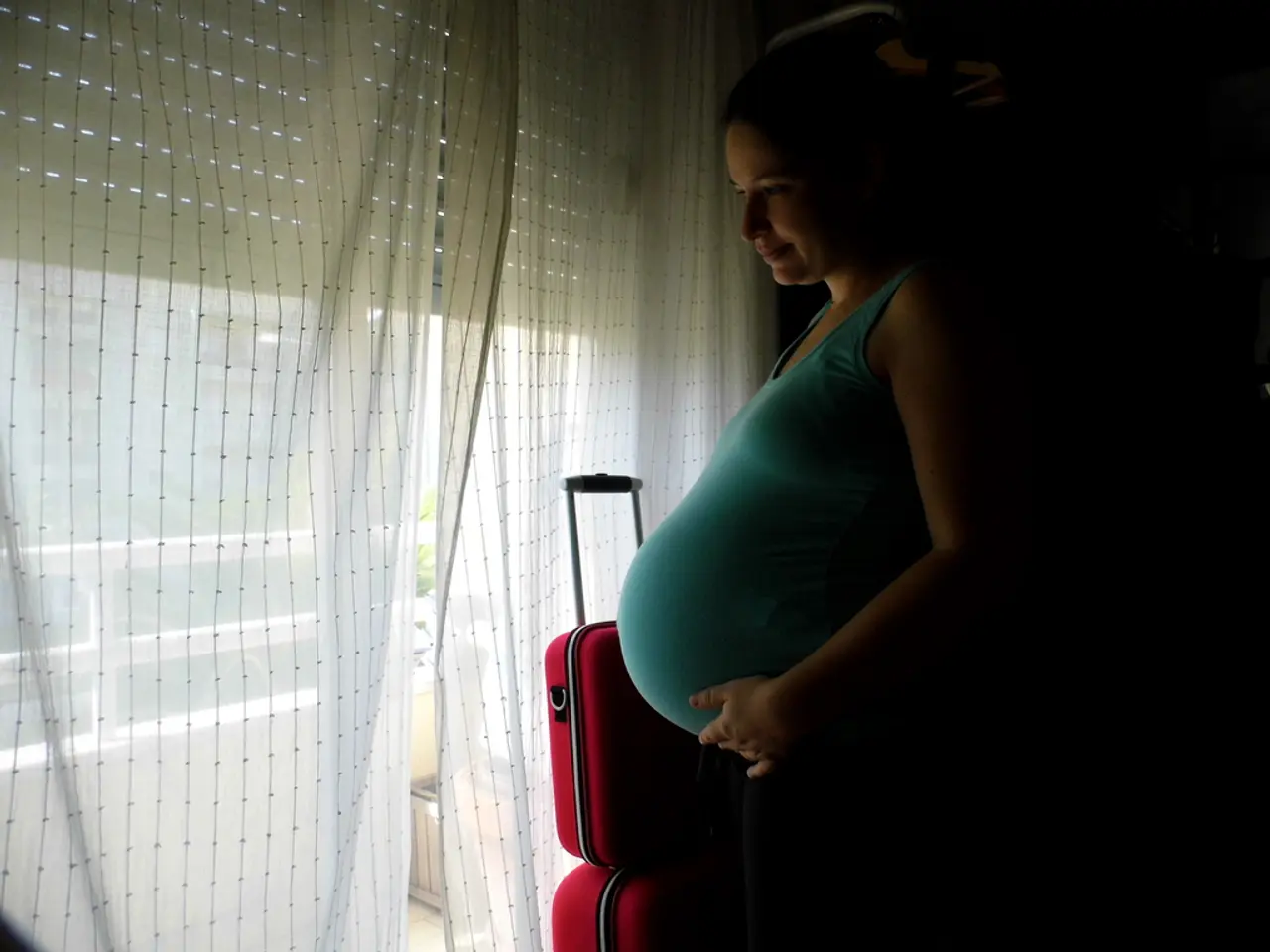Pap Smear Bleeding: Reasons and What You Should Anticipate
A Pap smear, a crucial screening test for cervical cancer, is a routine procedure for many women. However, some may experience bleeding after the test, which can cause concern. Here's a breakdown of what bleeding after a Pap smear might mean and when to seek medical attention.
First and foremost, it's essential to understand that while cervical irritation, pregnancy, and menstruation are common causes of bleeding after a Pap smear, there can be other less obvious factors at play.
Infections, such as cervical or uterine infections, hormonal imbalances, uterine fibroids, bleeding disorders, cervical or uterine cancers, trauma to the cervix, use of contraceptives, sexually transmitted infections, and thyroid dysfunction can potentially lead to heavy bleeding after a Pap smear.
Infections, for instance, can cause abnormal bleeding, while hormonal imbalances in teenagers and perimenopausal women may lead to dysfunctional uterine bleeding. Uterine fibroids and polyps, benign growths in the uterus or cervix, can contribute to heavy bleeding, as can bleeding disorders or blood clotting problems.
Cervical or uterine cancers can also cause abnormal and sometimes heavy bleeding, with Pap smear abnormalities like high-grade squamous intraepithelial lesions (HSIL) or atypical glandular cells potentially indicating precancerous or cancerous changes.
Trauma to the cervix during the Pap test or from cervical growths and inflammation can sometimes cause heavier bleeding than usual, and the use of contraceptives such as intrauterine devices (IUDs) or birth control pills can sometimes result in abnormal bleeding. Sexually transmitted infections may also contribute to abnormal or heavy bleeding post-examination.
In pregnancy, cervical insufficiency or infection can cause bleeding, with more severe causes including placenta previa or other placental issues.
If heavy bleeding occurs after a Pap smear and is more than slight spotting or irritation, it is important to seek medical evaluation to rule out these more serious causes. Persistent or heavy bleeding could be a sign of underlying pathology that requires further investigation such as colposcopy or biopsy.
It's worth noting that a Pap smear will not cause pregnancy loss, but it may trigger bleeding. During a Pap smear, a healthcare professional uses a speculum to open the walls of the vagina and collects a tissue sample from the cervix.
If you experience any vaginal bleeding inconsistent with your usual pattern or post-menopause, it's crucial to contact a doctor. Some people may notice bleeding after a Pap smear due to increased attention to vaginal symptoms. Allergic reactions to supplies used during a Pap smear, such as latex gloves or lubricants, can cause itching or burning in the vagina or vulva.
In conclusion, while bleeding after a Pap smear is often due to cervical irritation, pregnancy, or menstruation, it's essential to be aware of other potential causes and to seek medical advice if heavy bleeding persists or causes discomfort. If you have not received your test results within 2 weeks, it's also advisable to contact your healthcare provider.
- Besides cervical irritation, pregnancy, and menstruation, infections like cervical or uterine infections, hormonal imbalances, and thyroid dysfunction can lead to bleeding after a Pap smear.
- Uterine fibroids, polyps, bleeding disorders, and blood clotting problems can also contribute to heavy bleeding after a Pap smear.
- Cervical or uterine cancers can cause abnormal and sometimes heavy bleeding, with precancerous or cancerous changes potentially indicated by Pap smear abnormalities.
- Trauma to the cervix during the Pap test or from cervical growths and inflammation can cause heavier bleeding than usual, as can the use of contraceptives.
- Sexually transmitted infections may also contribute to abnormal or heavy bleeding post-examination.
- In pregnancy, cervical insufficiency or infection can cause bleeding, with placenta previa or other placental issues as more severe causes.
- If heavy bleeding occurs after a Pap smear and is more than slight spotting or irritation, it is important to seek medical evaluation to rule out these more serious causes.
- Persistent or heavy bleeding could be a sign of underlying pathology that requires further investigation such as colposcopy or biopsy.
- A Pap smear will not cause pregnancy loss, but it may trigger bleeding during menstruation.
- If you experience any vaginal bleeding inconsistent with your usual pattern or post-menopause, it's crucial to contact a doctor.
- Allergic reactions to supplies used during a Pap smear, such as latex gloves or lubricants, can cause itching or burning in the vagina or vulva.
- In some cases, bleeding after a Pap smear might be due to increased attention to vaginal symptoms.
- If you have not received your test results within 2 weeks, it's also advisable to contact your healthcare provider for follow-up. Additionally, awareness of potential causes of bleeding and seeking medical advice promptly can contribute to early detection and treatment of diseases such as breast cancer, colitis, psoriasis, psoriatic arthritis, Crohn's disease, COPD, HIV, macular degeneration, Alzheimer's, type 2 diabetes, migraine, ulcerative colitis, NSCLC, and other health-and-wellness issues pertaining to women's health.




